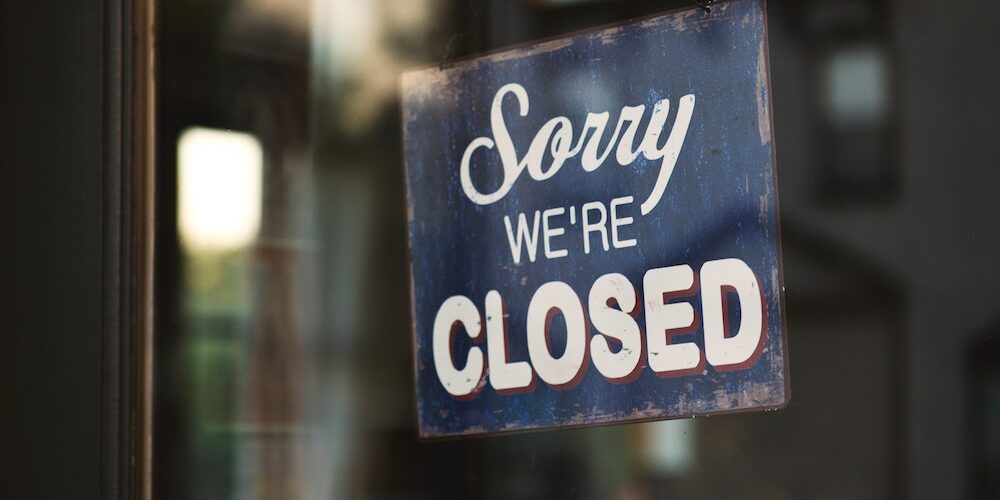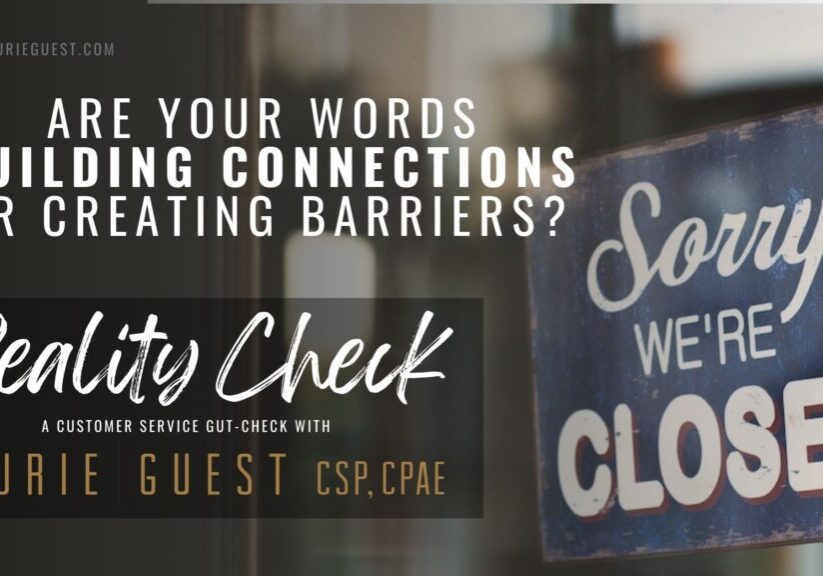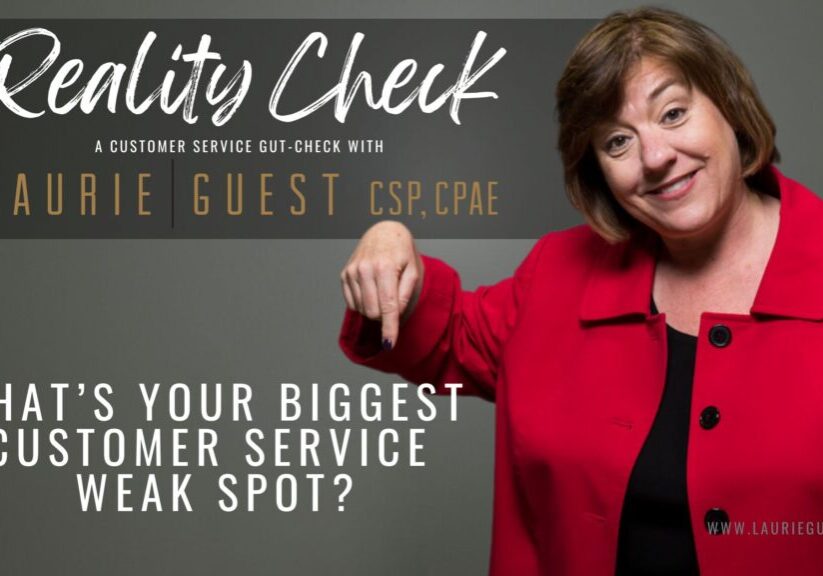In an episode of Seinfeld, George Costanza says, “You can stuff your sorries in a sack, mister.” He meant, “Your apologies are not accepted!”
Are you using sorry statements in your business or organization?
Many companies are quick to say “I’m sorry,” because they believe the statement comes across as great service. That’s just not true. I urge you to save your “Sorry” statements for when an apology is truly owed. I am amazed how often I see “Sorry” signs that could be worded differently. Here’s an excerpt about what I mean; use the link below to get the entire PDF.
Want the full article as a PDF? Get it here.
Sign up to receive monthly recaps of all my latest articles.
Several years ago, I was in an electronics store with a choice of four cash registers to ring up purchases. Even though it was a busy holiday shopping day, only one register was busy; two were open with no waiting, and the fourth had a sign on it that read, “Sorry for the inconvenience. This register temporarily closed.”
First off, I noticed the sign was a professionally printed one, so there was nothing temporary about the situation. This sign was put in front of any register they didn’t want to use as a way of saying “We’re not using this lane right now.”
“Sorry” is the first word on the sign. Way back in their subconscious minds when customers see “Sorry,” they feel slighted rather than served. The sign should read, “We would be delighted to help you at any one of our open registers.” See how much better that sounds?
Do you have any “Sorry” signs up right now in your place of business? What about verbal “Sorries” to customers?
Recently, I did a training session at a hospital. Twelve different groups of employees with an average of 50 people in each group attended. During each session, I asked this question: “How many of you say sorry to someone every day at work?” More than half of the hands went up in every class. That means that this organization says “Sorry” over 9,125 times per year to their patients and patients’ families.
Great service? Perhaps stuffing the “Sorries” is in order.
Take a tour of your building or office and look for the “Sorry” signs. Revise what you say to give the information without the apology. Discuss how often and in what situation you find yourself apologizing to your guest. When you determine an apology is owed, find the best way to say it. If you decide an apology isn’t owed or it’s just a habit, start creating your list of replacement sentences.
Yes, stuff your sorries in a sack. You will not miss them.
Want the full article as a PDF? Get it here.
Sign up to receive monthly recaps of all my latest articles.







